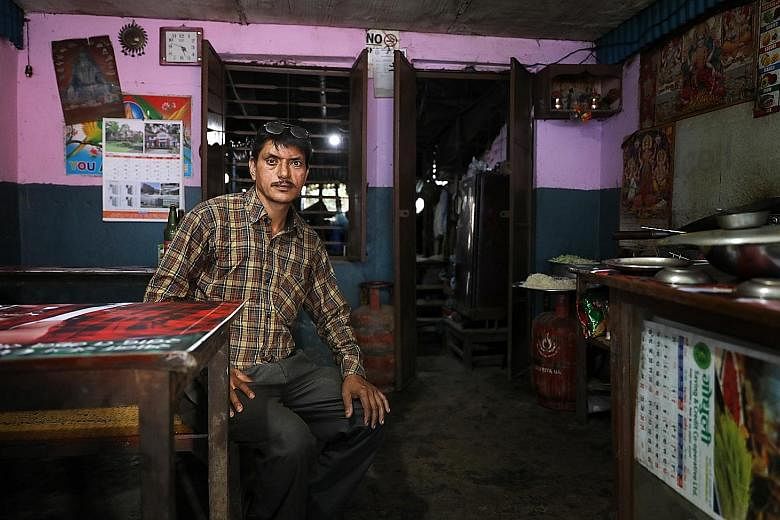CHITWAN (Nepal) • In October 2016, most Nepali households were celebrating Dashain and Tihar, the country's two biggest festivals.
But Mr Khilnath Khaual's family members were gathered by his bedside in hospital, waiting for him to die.
The clerk had contracted dengue haemorrhagic fever, a severe form of dengue that can cause a person to bleed excessively. There is no vaccine or cure for the disease.
He dodged death.
Mr Khaual recounted how he had gone to a dentist in September because his gums were bleeding. He thought he had gum disease. But the bleeding did not stop, and his dentist told him to go to a hospital instead.
Mr Khaual spent the next 19 days in Chitwan Medical College's intensive care unit fighting off dengue, although the prognosis was bleak.
At its lowest, his blood platelet count dropped to 11,000 per microlitre of blood. A healthy person has between 145,000 and 450,000 platelets per microlitre of blood. A low platelet count makes it difficult for blood to clot and increases a person's chances of bleeding to death.
"My family was crying because the doctor told them that he thought I would die," said Mr Khaual, 45. "He told them to prepare for my funeral."
But after undergoing several blood transfusions amounting to more than 25 litres of blood, Mr Khaual survived.
He lives in Ratnanagar, a district in the lowland Chitwan area located in the south of Nepal where the weather is often hot and wet.
During the 2016 dengue outbreak, which lasted from June to November, nearly half of the 1,473 confirmed dengue cases came from Chitwan. The peak of the outbreak in September coincided with the tail end of the monsoon season there.
"In almost every house, at least one person had dengue," Mr Khaual recalled. "It was a very terrible situation."
He added: "In previous years, there were only a few cases here and there. But that year, there were so many."


